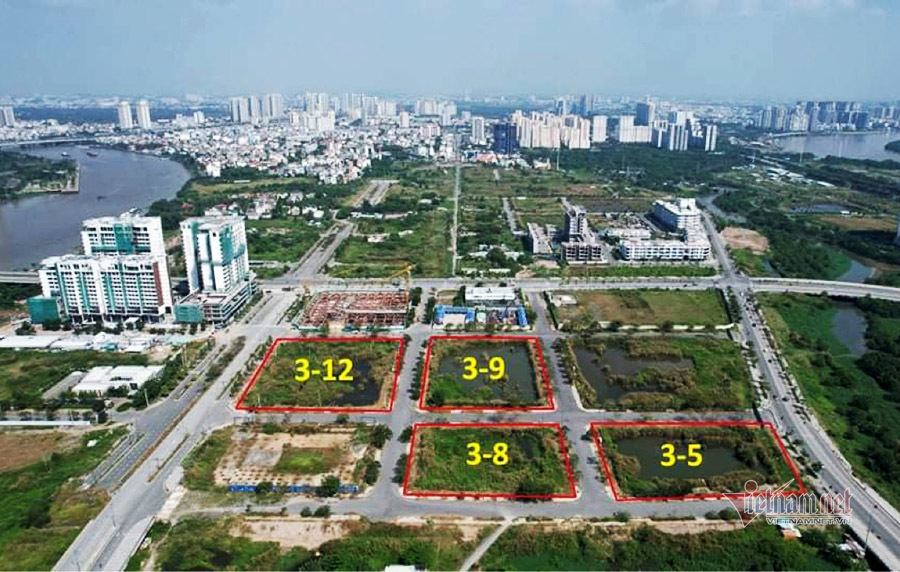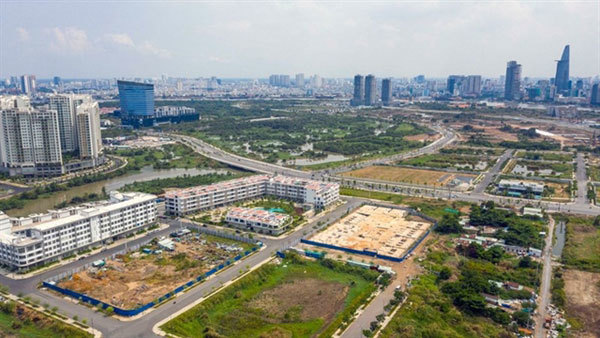
The Ministry of Labor, War Invalids and Social Affairs (MOLISA), when reviewing the 2013 Land Law and an amended law, pointed out that the law has solved many problems and management at all levels has gradually improved and administrative procedures have been simplified. But many problems still exist.
In some areas, land cannot be effectively used, while land users exploit the land allocation policy to transfer land underground, thus leading to a decrease in agricultural area and area for rice cultivation. As a result, farmers lose fields and have no jobs.
MOLISA pointed out that there are many ‘pending’ projects; compensation for site clearance and resettlement in some urban areas are slow; land financing is not flexible and land prices used for compensation are lower than market prices.
In some cases, investors bid high prices at auctions, but cancel the purchase later. As a result, land prices are exaggerated.
Violations of the laws on land still occur in many localities. Land appropriation and encroachment, use of land for wrong purposes, and illegal transfer of land still occur. Meanwhile, state management agencies are slow in dealing with complaints and solving appeals from people.
MOLISA said some subjects deliberately violate and circumvent the laws to appropriate land. Meanwhile, some regulations are contradictory and have not been amended. The inspections still cannot promptly handle violations.
The capacity of land management organization cannot meet the requirements and land registration offices in localities have not been restructured and consolidated.
Regarding amendment of the 2013 Land Law, MOLISA said it’s necessary to adjust regulations in accordance with the practice of land management and use. The law must be consistent with other laws, including the Law on Planning, the Law on Housing, Investment Law and Law on Public Property Management.
It’s also necessary to improve the policies on the management and use of agricultural land, and accelerate accumulation and concentration of land for restructuring the agricultural sector.
Regarding land auctions, the Prime Minister asked the Ministry of Natural Resources and the Environment (MONRE) to cooperate with the ministries of Justice, Finance and Construction, and people’s committees to check auctions that show abnormal signs.
Thuan Phong

After Thu Thiem auction, people queue up to buy land worth millions of dollars
Though the winners of Thu Thiem land auctions withdrew their purchase contracts, the land market in HCM City remains hot, and the prices of some projects are escalating.

Lessons learnt from the Thu Thiem land auction case
A suitable auction form for each type of property and more stringent sanctions are needed to prevent auction winners from walking away without buying as happened recently in the Thu Thiem New Urban Area, experts said.